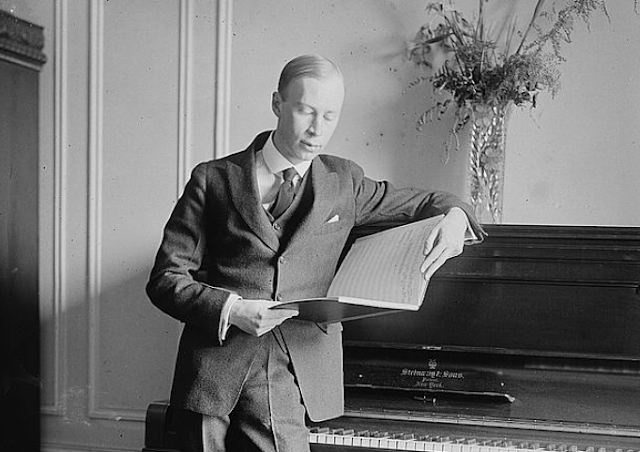 |
| Clown with Drum, by Walter Kuhn Art Institute of Chicago |
Credit where due: 2021 wasn't worse than 2020. We could be almost a year into Donald Trump's second term. Think about that.
An infamy that might still be coming. Which is the tone that pretty much continued through the year. Bad, but not worse, unless that's on deck. Yes, the plague, surging with omicron yet not quite as lethal (unless that's coming). The orange traitor separated from his Twitter bullhorn. For now. Still, hundreds of thousands more dying of COVID. And the former Liar in Chief's followers baying for his return, while inveighing our current president, Joe Biden, who at times seems maddeningly inert.
Honestly, I won't blame Republicans if they corrupt and subvert our electoral system and place Trump on the throne, I mean in the White House, in 2024. Because they certainly telegraphed their intentions. Clear. As. Day. And the Democrats are doing that Three Stooges thing they do, dragging their hands over their faces and hee-bee-bee-beeing and bumping into each other in a roiling ball of confusion.
An infamy that might still be coming. Which is the tone that pretty much continued through the year. Bad, but not worse, unless that's on deck. Yes, the plague, surging with omicron yet not quite as lethal (unless that's coming). The orange traitor separated from his Twitter bullhorn. For now. Still, hundreds of thousands more dying of COVID. And the former Liar in Chief's followers baying for his return, while inveighing our current president, Joe Biden, who at times seems maddeningly inert.
Honestly, I won't blame Republicans if they corrupt and subvert our electoral system and place Trump on the throne, I mean in the White House, in 2024. Because they certainly telegraphed their intentions. Clear. As. Day. And the Democrats are doing that Three Stooges thing they do, dragging their hands over their faces and hee-bee-bee-beeing and bumping into each other in a roiling ball of confusion.
In some ways 2021 was worse, beginning as it did with the Jan. 6 insurrection, a rock nadir in American history (unless it's just the warm-up). One I came close to predicting in my column that day, "The South shall fall again. And again. And again." At least I set the stage:
In February, we bade farewell to Chicago Teachers Union president Karen Lewis. March began by joining the Night Ministry as they treated homeless 'L' riders. In April, we glimpsed one of the earliest movies in existence, police on parade in 1896, and saw how a newsreel caught them attacking protesters then lying about it in 1937.
The Lost Cause marches on, as we will see Wednesday, when Congress faces another ego-stoked rebellion: Donald Trump’s insistence that his clearly losing the 2020 presidential election in the chill world of fact can be set aside, since he won the race in the steamy delta swampland between his ears.Of course, you didn't have to be Nostradamus to see that coming. Then and now. January also saw my most well-read post, "In Defense of John Kass," which got nearly 10,000 hits. Again, not setting the internet on fire. But not bad, though I think it's more a reflection of just how many people fuckin' hate John Kass. The blog overall got almost a million hits in 2020, though I estimate that between a quarter and a third of that are robots. Bad? Good? Who knows? As the poet said, work is its own reward.
In February, we bade farewell to Chicago Teachers Union president Karen Lewis. March began by joining the Night Ministry as they treated homeless 'L' riders. In April, we glimpsed one of the earliest movies in existence, police on parade in 1896, and saw how a newsreel caught them attacking protesters then lying about it in 1937.
In May, EGD chowed down with a hockey billet family. June we said goodbye to our cat, Gizmo. July saw three columns, out of four, about picking up after dogs, including one on how blind people do it, which might be the archetypical Steinberg theme. I was proud of that.
In August, we visited the S. Rosen hot dog bun factory. In September, it was two visits with top sound engineer Steve Albini. October marked the 150th anniversary of the Great Chicago Fire. In November, we marked autumn by pedaling around Elmwood Park, looking at trees. And December, heck, I don't know, the continuing time-suck that is the Jussie Smollett case stole a few more minutes from my life, and yours.
What does it add up to? Hell if I know.
Thanks as always to our Saturday star, Caren Jeskey, who stuck 52 landings, every single week, without fail, without ever being late or making me sweat, even while moving to Chicago and enduring all sorts of adventures here. Deep gratitude to Marc Schulman, of Eli's cheesecake, who blessed me with cheesecake, with advertising, and the pleasure of his insights. Thank you for everyone who read, and who wrote in, particularly those with corrections.
On Wednesday, I turned in the final edited manuscript of the book I was asked to write, based on this blog, by the University of Chicago Press. It was enormously fun to write, and I can't wait for he book to come out in the fall. So something to look forward to. Which is about all anybody can ask nowadays. Stay safe. Thanks for reading. See you all every goddamn day in 2022.









